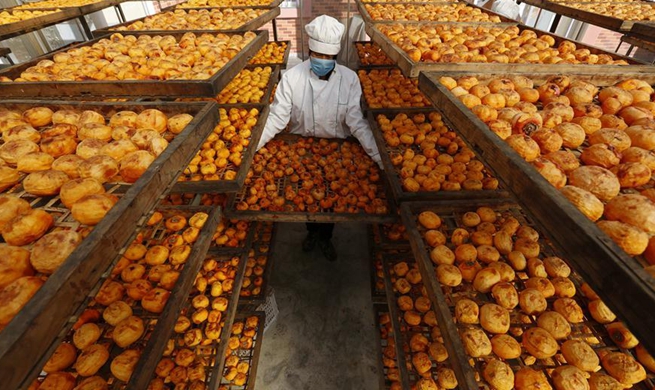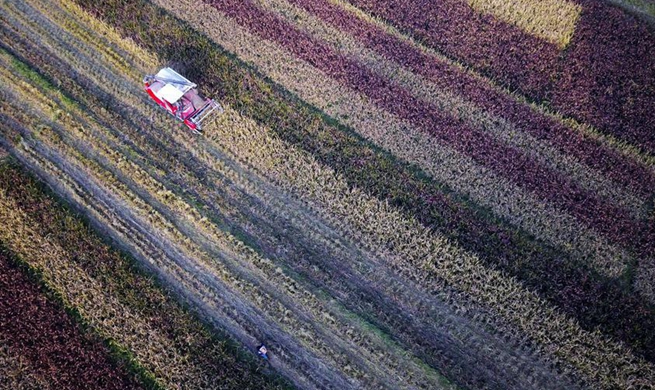KIGALI, Oct. 30 (Xinhua) -- Agriculture experts on Monday called on global economies to conserve and appropriately use food plant genetic varieties in order to end famine, hunger and malnutrition.
They were speaking at the opening of the 7th Session of the Governing Body of the International Treaty on Plant Genetic Resources for Food and Agriculture (ITPGRFA) in Kigali, capital of Rwanda.
The five-day meeting, which started on Monday, aims to strengthen the ITPGRFA pact.
"Plant genetic resources are essential to humankind's fight against hunger. Famine and starvation in the world is rising due to climate change and conflict," said Rene Castro-Salazar, assistant director-general, Food Agriculture and Organization of the United Nations (FAO).
"It's time we sensibly use the world's limited precious plant genetic resources for food and agriculture to end hunger and malnutrition," Castro-Salazar said.
Through the international treaty on plant genetics, he said, countries ought to work together to ensure the availability of the basic material needed to grow food and boost agriculture production.
The ITPGRFA, adopted in 2001, is a global response to promote the conservation of genetic resources and to protect farmers' rights to access and have fair and equitable sharing of benefits arising out of their use.
It facilitates access to the genetic materials of the 64 crops in the multilateral system for research, breeding and training for food and agriculture. Those who access the materials must be from the treaty's ratifying nations and they must agree to use the materials totally for research, breeding and training for food and agriculture.
The meeting's theme is "2030 Agenda for Sustainable Development and the Role of Plant Genetic Resources for Food and Agriculture."
It has brought together experts, non-governmental organizations, scientists and farmers' representatives from 144 ITPGRFA member nations.
The meeting provides an opportunity to raise awareness and build consensus among the participants on the value and contribution of plant genetic resources to dietary diversity, health and nutrition in the context of the realization of the right to food, according to organizers.
According to the FAO, the number of food and agriculture plants currently covered under the ITPGRFA is limited to 64, providing humans with 80 percent of their food intake from plants.
Attaher Maiga, FAO country representative to Rwanda, said that genetic diversity of crops is a fundamental tool in humanity's efforts to do away with hunger and malnutrition.
"Plant genetic resources contained a wealth of food nutrients that farmers all over the world could focus on to address climate-driven challenges and sustain food production," he noted. "The treaty on plant genetic resources is vital to achieve 2030 Agenda for Sustainable Development particularly eradicating extreme poverty and hunger and guaranteeing environmental sustainability."
Hunger is on the rise in the world as, overall, hungry people increased to 815 million in 2016 from 777 million in 2015, according to an FAO food security report.
Africa has the highest rate, with hunger affecting one in four people on the continent, compared to the global rate of one in 10, the report said.

















